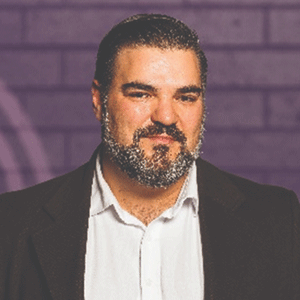THANK YOU FOR SUBSCRIBING
Editor's Pick (1 - 4 of 8)

Technostress: Does it Impede or Advance Employee Innovation?
Dr. Shalini Chandra, Associate Professor, Information Systems, SP Jain School of Global Management


Dr. Shalini Chandra, Associate Professor, Information Systems, SP Jain School of Global Management
Such a rounded approach can help organizations design more meaningful organizational stress management strategies.
Do these five technostress creators influence employee outcomes differently?
Though leading global corporations such as Apple, 3M, and Proctor & Gamble largely owe their outstanding business performance to successful employee innovation and numerous studies have highlighted ICT-enabled employee innovation as a key job outcome that influences business performance, research has yet to examine the influence that technostress creators have on ICT-enabled employee innovation in depth. I conducted this research in collaboration with Dr Anuragini Shirish from Université Paris-Saclay and Dr Shirish C Srivastava from HEC Paris. We conducted research by sending email invitations to senior organizational managers to participate in the survey. We wanted to examine both linear and curvilinear influence of individual technostress creators on ICT-enabled employee innovation.
Results
The results showed that the five technostress creators responded differently to ICT-enabled employee innovation. Contrary to our expectation that all the five technostress creators would cause distress among the employees and have a negative linear effect on innovations, surprisingly techno-overload and techno-insecurity did not impact employee innovations. Interestingly, we found a strong positive relationship between techno-uncertainty and employee innovation. The results further showed techno-overload, techno-invasion, and techno-complexity to have a significant U-shaped relationship with ICT-enabled employee innovation rather than the inverted U-shaped relationship as the organizational stress literature proposes. These results justify the need to study the individual interpretations of each technostress creators in the research context.
Key Takeaways for Managers
Organizations should actively engage in understanding how employees perceive individual technostress creators and design nuanced strategies based on the perceived employee experience. First, discussing techno-overload, the results suggest that organizations in addition to using technological aids to maximize employee innovation performance should also strive to change employees’ mindset to inculcate a culture that appreciates the opportunities that techno-overload offers. The Organization should modify the thinking and behaviour of the employees and improve their control over techno-overload-related issues by training and incentivizing their employees. This would encourage employees to perceive techno-overload opportunistically as a challenge rather than as a hindrance. Second, in order to reduce the techno-distress due to techno-invasion, organizations should satisfy employees’ need for control. Providing better control to employees to manage techno-invasion may result in techno-eustress and cause employees to want to use such technologies for innovation at work. Third, the results of techno-complexity suggest that management should develop employees’ capacity for ICT-enabled innovation by offering skill-development and technical-training programs. Organizations should also provide employees with the right set of tools so that they develop the required technical skills and capabilities to actively participate in the innovation process. Lastly, our analysis suggests that employees will be willing to use new and complex technologies and experience techno-eustress if organizations monitor not only technostress creators but also how employees interpret them.
Summarizing, management should not only provide a supportive environment for innovation that allows employees to accumulate the resources they need to cope with technostress creators but also conduct technostress-inoculation training programs that can strengthen employees’ self-efficacy beliefs and alter how they perceive stress creators to reap the benefits that these stress creators can provide. Because stress response is a relational concept, personalized managerial interventions may also yield favourable results. Psycho-educational methods and cognitive restructuring have proven useful for preventing and managing stress and may also be suitable for the technostress context. However, employees’ nature and profile would play a vital role in determining the specific types of interventions that would suit them in the technostress context.
Dr Shalini Chandra is an Associate Professor of Information Systems, based at S P Jain School of Global Management, Singapore campus. SP Jain Global has campuses in Dubai, Mumbai, Singapore, and Sydney. Her research interests include technology-enabled innovation, new collaborative technologies, adoption, acceptance of new technologies, the dark side of technology and social media.











